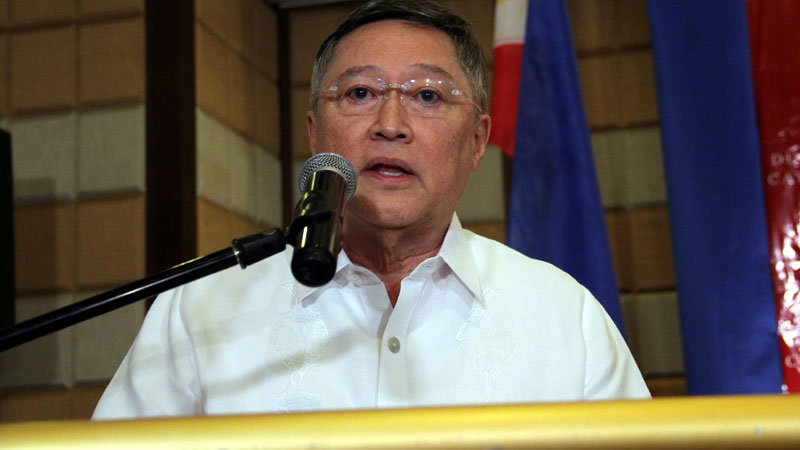EU members vow to hike investments
Despite President Duterte’s cursing at the European Union for its criticism of the administration’s war on drugs, 14 member-states still plan to push through with additional investments in civil security, energy and infrastructure, the Department of Finance said Wednesday.
In a separate meeting with Dominguez also recently, the ambassador of Iran also expressed plans to import more bananas from the Philippines as well as intensify cooperation and investment in energy and infrastructure.
The DOF quoted Iranian Ambassador Mohammad Tanhaei as saying that “a deputy minister of Iran’s finance ministry would be visiting the country in the first week of November to discuss with Philippine officials a framework of cooperation between Manila and Tehran.”
While Philippine banana exporters used to ship up to 30 percent of their production to Iran, the past United Nations trade restriction imposed on Tehran due to its nuclear program led to a decline in banana exports to the Middle Eastern country. But the DOF expressed optimism that the recent lifting of the trade sanctions could mean Iran might once again be one of the Philippines’ largest markets for its fresh banana exports.
The head of the economic team, meanwhile, enjoined the EU members to continue their financial assistance to the government’s anti-illegal drug campaign.
The DOF said that in a recent meeting with Finance Secretary Carlos Dominguez III, 15 EU envoys also expressed support for the 10-point socioeconomic agenda of the Duterte administration aimed at slashing poverty incidence to 17 percent by 2022 from 26 percent at present.
Dominguez recently met with Ambassador Franz Jessen, the head of the EU delegation to the Philippines, as well as the following envoys to Manila: Josef Muellner of Austria; Ronald van Remoortele of Belgium; Jaroslav Olša Jr. of the Czech Republic; Jan Top Christensen of Denmark; Thierry Mathou of France; Gordon Kricke of Germany; Kaimenakis Nikolaos of Greece; Massimo Roscigno of Italy; Marion Derckx of the Netherlands; Harald Fries of Sweden, and Asif Ahmad of the United Kingdom, although the UK will break away from the EU following the “Brexit” vote. Top level representatives of Hungary, Romania and Spain in the Philippines also attended the meeting.
The DOF said the EU ambassadors “expressed their interest in working closely with the Philippines in implementing its 10-point socioeconomic agenda on inclusive growth.”
The ambassadors were one in saying that they are looking forward to further strengthening the EU’s bilateral relations with the Philippines, especially in the field of trade and economic cooperation, the DOF added.
The DOF quoted Fries as saying that “businessmen from Sweden are increasingly optimistic over business prospects in the Philippines and have expressed interest in visiting Manila to explore possible investments in infrastructure, energy, business process outsourcing, military, civil security, among other fields.”
A record number of Swedish business leaders would be coming to Manila in the next few weeks headed by Sweden’s Minister of Enterprise and Innovation, Fries added.
Dominguez, for his part, welcomed the EU members’ commitment to increase their investments in the Philippines. “If there are any business groups coming in, I will be very happy to meet with them.”
The finance chief also acknowledged that fund assistance to the Philippines to establish drug rehabilitation facilities here formed part of the EU’s broader program to help the country deal with its war against illegal drugs.
“Building facilities is probably only 25 percent of the solution to the drug addiction issues, and we certainly need a lot of training, a lot of help in that area,” he said.
Meantime, Iranian companies were interested in investing in the Philippines, particularly in infrastructure, power transmission and water purification projects, Tanhaei said.
For its part, the Iranian government wanted deals with the Philippine government in oil exploration as well as petroleum trade, the envoy added.
The Iranian official was also seeking to strengthen ties between Iran’s central bank and the Bangko Sentral ng Pilipinas, saying that such would “pave the way for Iranian investors to start doing business in the Philippines.”
The DOF said Tanhaei told Dominguez that he would invite the head of Iran’s central bank to visit here and “discuss issues on banking cooperation with the BSP.”
Tanhaei also raised the possibility of establishing branches of Iranian banks in the Philippines and for Land Bank of the Philippines to do the same in Iran, citing the need to provide banking facilities for overseas Filipino workers in Iran, the DOF said.


